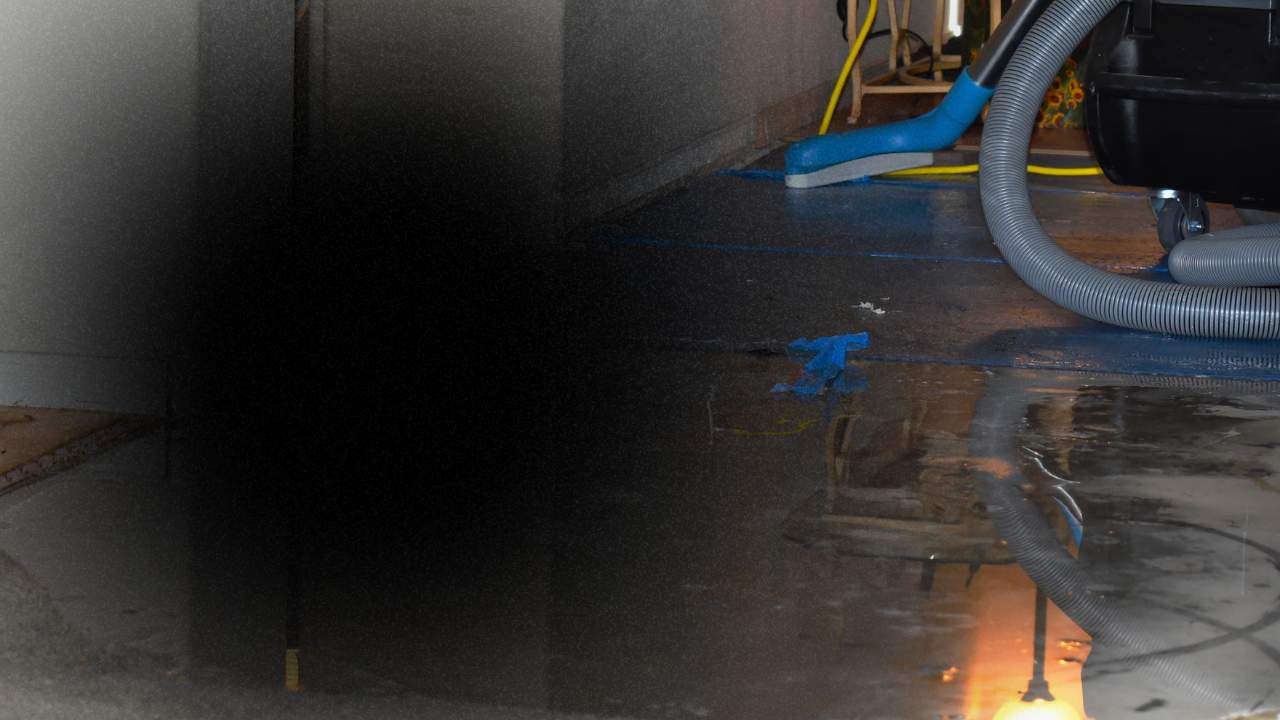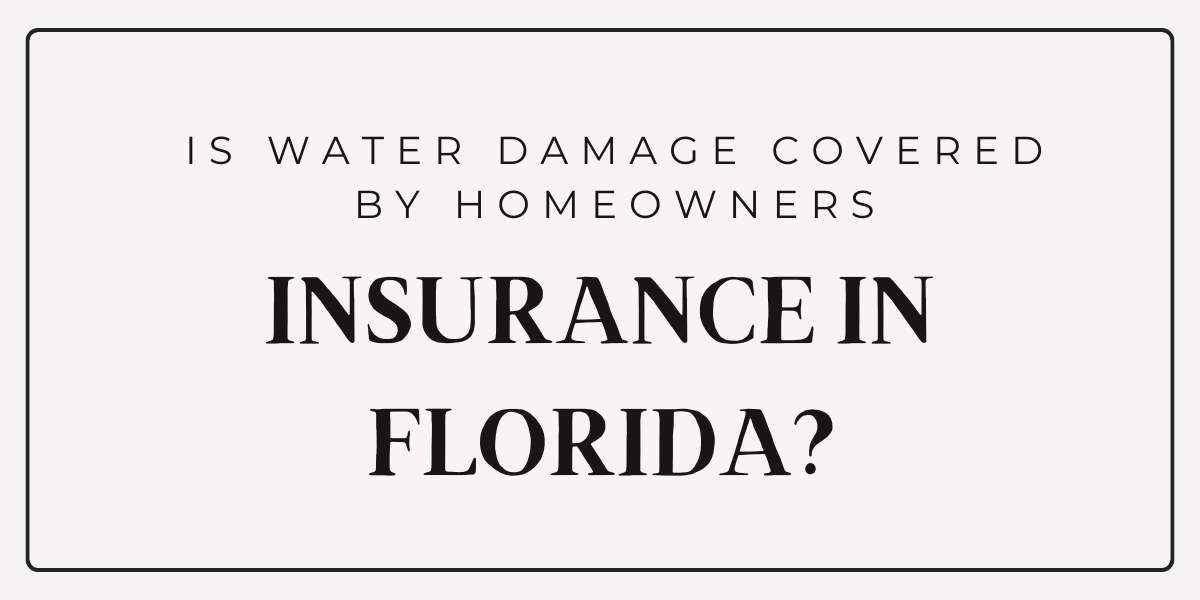Homeowners in Florida often ask: “Does my homeowners insurance cover water damage?” The answer is — it depends. Florida’s weather, from hurricanes to heavy rains and high humidity, makes water damage a common issue. But not all water damage is treated the same by insurance providers. In this article, we’ll break down what types of water damage are typically covered under a Florida homeowners insurance policy, what’s not covered, and what you can do to protect your property.
What Is Considered Water Damage?
Water damage includes any loss or destruction caused by water entering your home, damaging the structure or personal belongings. Common types include:
- Burst pipes
- Leaky roofs
- Flooding from storms or hurricanes
- Overflowing appliances
- Sewer backup
- Mold from water intrusion
However, the cause of the water damage greatly affects whether insurance covers it.
What Types of Water Damage Are Typically Covered in Florida?
Homeowners insurance in Florida usually covers sudden and accidental water damage. This means damage that happens unexpectedly and without warning. Examples of covered scenarios include:
1. Burst Pipes or Plumbing Failures
If a pipe bursts due to freezing temperatures or accidental pressure buildup, the damage it causes is often covered. However, the actual repair of the broken pipe may not be.
2. Appliance Overflows
If your washing machine, dishwasher, or water heater malfunctions and causes water damage, this is generally included in most standard policies.
3. Roof Leaks (from Storm Damage)
If your roof is damaged during a storm and rain enters your home, the resulting water damage is usually covered. However, if the roof leak occurred due to neglect or age, it may not be.
4. Accidental Overflows
Overflow from sinks, tubs, or toilets that happens suddenly and unintentionally is often covered.
What Water Damage Is Not Covered by Homeowners Insurance?
There are specific scenarios where insurance companies will deny a water damage claim. These usually involve neglect, gradual damage, or exclusions. Here are common exclusions:
1. Flood Damage
Standard homeowners insurance does not cover flood damage. In Florida, where flooding is a serious risk, you need a separate flood insurance policy through FEMA’s National Flood Insurance Program (NFIP) or a private insurer.
2. Sewer or Drain Backup
Water damage caused by a backed-up sewer or drain is usually not covered unless you have added specific sewer backup coverage as an endorsement.
3. Gradual Leaks
Long-term leaks due to poor maintenance, such as a slow roof leak or worn-out pipe, are typically not covered. Insurance providers view this as a maintenance issue, not a sudden incident.
4. Mold Resulting from Uncovered Water Damage
If mold develops from a covered water event, cleanup might be included. But if mold stems from a non-covered source, your claim will likely be denied. Mold remediation can be expensive in Florida due to its high humidity.
Optional Add-Ons for Better Protection
Because water-related issues are so common in Florida, homeowners should consider these policy add-ons:
- Flood Insurance: Critical for those in flood zones or coastal areas.
- Sewer/Drain Backup Coverage: Helps with messy and costly backups.
- Mold Remediation Endorsement: Extends coverage limits on mold removal and cleanup.
Adding these to your policy may cost extra, but it can save you thousands in case of damage.
Tips to Avoid Denied Claims
Insurance companies may deny water damage claims if they believe the damage resulted from neglect or lack of maintenance. Here are a few ways to protect your coverage:
- Perform regular inspections of plumbing, roofing, and appliances.
- Document damage immediately when it occurs. Take photos and videos.
- Fix small leaks quickly to prevent them from becoming bigger problems.
- Keep records of maintenance and repairs.
Having this documentation can strengthen your claim and show your insurer that the damage was sudden and accidental, not due to negligence.
How to File a Water Damage Claim in Florida
If you experience water damage, act fast. Follow these steps:
- Contact your insurance company immediately.
- Document the damage with photos, videos, and written notes.
- Prevent further damage by stopping the water source and drying out affected areas.
- Hire a professional restoration company if needed.
- Keep all receipts for expenses related to cleanup and repairs.
Working with a local public adjuster or restoration company experienced with Florida insurance claims can help speed up the process and ensure a fair settlement.
Homeowners insurance in Florida does cover certain types of water damage — but only if the damage is sudden and accidental. Routine maintenance issues, flooding, and sewer backups typically require additional coverage. With Florida’s climate, having the right protections in place is critical.
If you live in a flood-prone area or own an older home, talk to your insurance provider about optional endorsements. Investing a little extra in your policy now could save you thousands in the future.
Need help with water damage in Florida? Contact us right away to minimize your loss and start the insurance claim process the right way.


